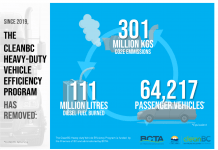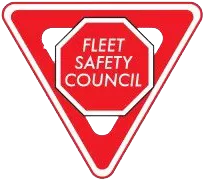As is with everything these days, COVID-19 has a part to play. But who could imagine that the pandemic might actually hasten our acceptance and use of electrically powered vehicles (EV) both cars and trucks? There is a case to be made that the pandemic may become the tipping point for the electrification of our roads and highways.
EVs have been around for more than a century, most likely you have traveled on an EV before. Many trains and most subways are electrically powered, as is light rail transit in Vancouver, Calgary, Edmonton, Waterloo, and Ottawa.
North America’s only surviving streetcar system is in Toronto and is electrically powered, in 2019 it carried an astonishing 165 million riders.
Unbelievably, Tesla did not create the electric car. That honour falls to Parisian inventor Gustave Trouvé, who in 1881 tested the first human-carrying electric vehicle. Today’s Paris is smog-filled, choking on the air of the internal combustion engine. In dire need of Trouvé’s invention.
Yes, the electric car has been around for longer than we’d think. But practicality, cost, infrastructure, and public opinion have slowed it down.
Magically we are about to make a quantum leap to the “new fuel” of electricity and witness the decline of fossil fuel-powered vehicles. It is now a matter of when and how we do that evolution from fossil fuel power to electric fuel power. That change is accelerating downhill.
A “perfect storm”, is building that is about to see the door open wide for EVs. The pandemic has quickly affected public opinion and altered our priorities. The new U.S. president, unlike the previous, has placed the environment and the necessary infrastructure to enable it at the top of his list. Elsewhere Europe and China, have taken great leaps to reduce dependency on fossil fuels, as they push the EV evolution. Canada has reaffirmed its’ strong commitment to a zero-emission future and environmental change and is pouring billions of dollars into that cauldron.
We are about to experience a paradigm shift. Defined as an important change that happens when the usual way of thinking about or doing something is replaced by a new and different way. That shift is the sudden and unexpected demand and changeover to EVs. Fueled by a greater awareness of the need for environmental change.
Most travel has ceased during the pandemic. The Manchester Guardian reports that COVID-19 has created a boom for the car, versus mass transit. People feel safer in their own space, or vehicles, rather than in shared transport, such as taxis, Uber, buses, and subways. Uber’s business is down 73%. Those who travel wish to do so alone in their vehicles. In the Guardian article, a former user of ride-hailing services said having a vehicle was like, “returning to teenage ideals, where when you have a car, you have freedom.”
Freedom translates to safety. KIA Canada says, “79 percent of Canadians say they feel the safest traveling by car, with 38 percent reporting they’re more conscious of their life choices and impact on the environment compared to at the start of this pandemic. 51 percent say they’d consider or intend to purchase an EV as their next vehicle to reduce their carbon footprint.”
EY, Ernst Young says that COVID-19 is also creating a new generation of first-time-buyers — 32% of non-car owners say they will purchase one in the next 6 months. In both cases, around half of those intending to buy are millennials, a cohort that has previously been much less interested in car ownership than their parents.
GM General Motors announced on Jan 28 that by 2035, it intends to cease building petroleum-powered cars and light trucks and to move entirely to ones that run on electricity. Within days Ford not to be outdone responded a similar oath.
While car sales dropped during the pandemic EV sales grew modestly in Canada by 3-4%. Predictions suggest sales numbers to grow 20-25% annually.
The stock market value of Tesla shares grew 409% in 2020.
EY Ernst Young says we are soon to shun the Internal Combustion Energy for personal travel. Currently, the electric vehicle (EV) market is poised for growth, on the back of increasingly stringent regulatory norms across all markets, investment in charging infrastructure, and the ambitious electrification targets of automakers themselves.
Make EVs cheaper and more dependable.
Car buyers are concerned about high upfront costs and rapid technological improvements in battery technology which could lead to an abysmal resale value for second-hand electric vehicles. Lease contracts and subscription services are the ideal alternatives for many millennials and generation X-aged buyers who would like to have a hassle-free EV driving experience but don’t want to be holding fast-depreciating assets.
Our pandemic shredded economy is in dire need of both incentives and insightful intuitive decision-making from a Government that has had to pull numerous rabbits out of the hat during the pandemic.
The hope and the opportunity are that the Canadian and U.S. governments work in tandem to incentivize and promote a rebuild after the pandemic to reestablish the economy.
The Biden administration is plugging EV adoption to help the U.S. meet its climate goals. His government is avowed to “Green Initiatives” as a way out of the economic malady caused by COVID-19. Biden’s US$2 trillion Clean Energy Plan includes sweeping proposals designed to create economic opportunities that also tackling climate change, notably by addressing one of the largest sources of emissions in the United States: internal combustion engine vehicles.
Already Canada is pouring billions into “Green” infrastructure. Charging station stations, electric buses, millions of dollars stimuli to Ford and Chrysler to turn their Canadian plants into EV vehicle manufacture. GM is spending $1 Billion on a plant in Ontario to build electric vehicle batteries.
Canada has an opportunity to become one of the world’s leaders in the lithium-ion battery market, but that potential needs to be recognized and nurtured by regulators and miners, Benchmark Mineral Intelligence director Simon Moores told the House of Commons on February 22, 2021. Canada is rich in many of the minerals needed EV battery production.
Canada has all the ingredients to be a leader in electric vehicles, but time is of the essence. The future for the EV is suddenly now.






















